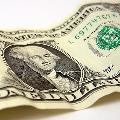
Another way for the banks and finance institutions to earn a quick buck.
MICROLOANS ARE small loans to people who would otherwise not have access to finance, they are often for amounts of around $20. What was supposed to have been an opportunity to help some of the poorest people in the world start up a small business has become just another way for the banks and finance institutions to earn a quick buck.
Muhammad Yunus, the economist who pioneered the practice by lending small amounts to basket weavers in Bangladesh, won a Nobel Peace Prize for it in 2006. "We created microcredit to fight the loan sharks; we didn’t create microcredit to encourage new loan sharks," said Mr Yunus.
Some are charging interest rates of 100% or more. In Mexico the average interest rate is around 70%, compared with a global average of about 37% in interest and fees.
An early sign that there was money to be made was CARE, an Atlanta-based humanitarian organisation. It started a microfinance institution in Peru in 1997. The initial investment was around $3.5 million, including $450,000 of taxpayer money. But last year, Banco de Credito, one of Peru’s largest banks, bought the business for $96 million, of which CARE pocketed $74 million.
The microfinance industry, with over $60 billion in assets, has outgrown its charitable roots. Banks and finance firms serve 60% of all clients, non-governmental organisations (NGOs) 35%, and credit unions and rural banks 5%.
Private capital first began entering the microfinance arena about a decade ago, but it was not until Compartamos, a Mexican firm that began life as a tiny non-profit organisation, generated $458 million selling shares in 2007, that they got a whiff of what profits could be made.
"The lesson is simply that it didn’t save the world," Dean S. Karlan, a professor of economics at Yale University, said about microlending. "It is not the single transformative tool that proponents have been selling it as."
Socialists would agree with that. Socialists call for the nationalisation of the banks and finance industry under democratic control. Small businesses and the self-employed could then be given affordable credit at reasonable rates and not be at the mercy of profit-hungry private banks.
In addition, small businesses should be protected from the big suppliers who are, next to banks, the bane of small businesses. They should have access to guaranteed supplies at agreed prices.

Be the first to comment